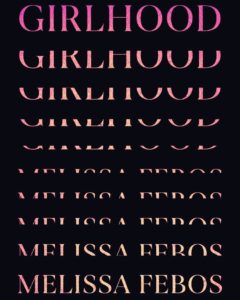The Probability of Everything. Sarah Everett. 2023. [June] 336 pages. [Source: Library] [Middle Grade Fiction]
First sentence: We first noticed the asteroid because my little sister, Lo, kept trying to eat it. It was a Sunday morning in April, and the three of us–me, Mom, and Dad–were sitting at the dining table, discussing a news story Dad was reading on his tablet.
My thoughts (preview): This book has mostly five and four star reviews on GoodReads. Clearly many people have read it and enjoyed it. BUT. I was not one of those. One of the reasons why I personally did not enjoy this one–not even a little bit–is that it is all switch and bait. In other words, Kemi Carter, the protagonist, is a completely unreliable narrator. Readers can take nothing–absolutely nothing–at face value. I don’t like being gaslighted for 80 to 90{8cf42eee1263fb36ad60c6660cad5304004dad224debe245ba4d38f99dbf0948} of the novel. Some readers may be like WOW the author really fooled us, how clever! Not me. I’m like, where’s the book that was promised?!?!
Premise/plot: The framework of the book is that this “book” is a letter written to be found in the future–either by humans who survived the asteroid OR aliens? OR another species that evolves out of the atoms? Something like that. It is written directly to the reader.
From the prologue, “Dear Reader, If you are reading this, then chances are that our world has ended. I don’t know what that makes you? . . . All that matters is that you’ve found this. All that matters is that you now know we existed.”
Kemi Carter loves, loves, loves science and math. She’s supposedly, supposedly all about the facts. (Except for when she isn’t, apparently).
Most of the novel is her “preparing” for the end of the world by creating a time capsule to be buried before the asteroid strikes earth.
My thoughts (conclusion): Perhaps some readers don’t mind being tricked. But other readers may. Or at the very, very least I mind. Every reader has his/her own way of choosing what to read next. They make decisions based on jacket copy, descriptions, book cover, sample excerpt (like from Amazon), or even other reviews. When most–if not all–lead the reader to certain conclusions, it seems tricky to have the actual-actual book be about something completely different. Not only are you not getting what you wanted to read, you’re getting something that you may very well NOT want to read. In fact, for those that tend to overthink (hint: me again): perhaps that’s why the trickery exists in the first place. To get more people to read your book than otherwise would have because of the subject matter being what it is.
As I said at the start, I am definitely in the minority here. Most people seem to think this one is wonderful, brilliant, clever, etc.
© 2023 Becky Laney of Becky’s Book Reviews



